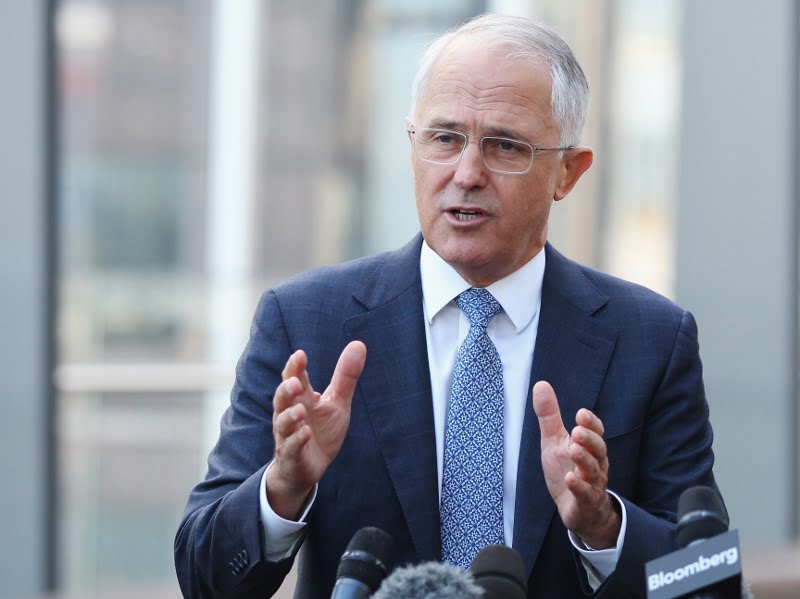Regardless of what you think about the government dropping a further $15 million into incubator support a week ago, it seems a strange way to announce policy.
This is what happens I suppose, when an election campaign starts immediately after a Budget is handed down. Weird stuff happens.
On Budget night there was no extra money available for incubators. This is despite the $8 million original funding announced last year as part of the National Science and Innovation Agenda being widely considered as anaemic.

But three weeks later – voila! –there’s an additional $15 million available. It’s a funny old world, isn’t it?
Perhaps there will be more funding announcements like this as we move slowly, ever slowly, through the obscure molasses of this thick, thick election campaign.
Maybe we should all be rejoicing that the sector’s disappointment at the Budget will be filled by a shower of such tech announcements. It would be a short party, though.
These initiatives should be viewed as more about creating ‘the feels’ for a successful innovation ecosystem rather than doing too much actual creating. That way we all won’t get so cranky in a couple of years when we realise just how much money has been pissed up against the wall.
As long as we are happy with ‘the feels’ as a benchmark for success, then this program will do well.
The last time Australia headed down this path, the term ‘startup’ had not been invented. At least it hadn’t made it all the way to the antipodes. The $36 million Building on IT Strengths (BITS) incubator program, together with the Brian Harradine-inspired Tasmanian pork known as the Intelligent Island program, in around 2002-03.
I hate to quote Battlestar Gallactica at a time like this, but frankly this is too good an opportunity to miss. “All of this has happened before and will happen again,” said the weird God-like human/cylon hybrid. (Which, of course, neatly sums up the stage we are at in this election campaign – a series of pronouncements from the All Mighty.)
The BITS program arrived just in time for the end of the dotcom boom. I am not sure that anyone would argue it was a roaring success. It left many, many “incubatees” (as they were then known) broken and without a way forward.
There were lots of stories about these tiny innovators being signed to contracts with BITS incubators they could not get out from under – paying over-the-odds rent and professional service fees. And having signed over too much equity with incubators who were themselves on a difficult financial footing, no-one could find a way forward.
If any of us had known back then that we were supposed to celebrate failure, then we would have partied hard for at least a couple of years in the early 2000s.
Of course you can’t view any of these programs in isolation. Venture capital was much, much harder to raise. Angels were called something else (and no-one really knew much about what they did anyway.)
And Australia did not have the skills to do this. It did not have the product management or even the global market expertise. We had only tiny numbers of returned Silicon Valley veterans, certainly not the numbers of returning entrepreneurs that come back to Australia that we see today.
Simply putting up your handing and saying you’re an incubator in the early 2000s did not mean you could actually hatch anything. There was some fairly dreadful and systematic rorting of the program.
But these programs have to be tried.
Personally I think BITS was a disaster. But that doesn’t mean it was without merit. And it doesn’t mean the government was hopeless. All it means is that industry development policy is hard. And you would also have to ask what would be the collective outcome if we weren’t having a crack back in 2001.
It also doesn’t mean the BITS policy was borne out of isolation, the product of government. Industry had lobbied hard for such a scheme (principally they AIIA).
Which brings us back to the additional $15 million the Prime Minister announced for the incubator support program. This brings Coalition policy about in line with what has been announced by Labor at about $23 million.
This money is for the incubators and not the startups. Any benefit to the startups is likely a happy coincidence. That’s the prism through which this policy should be viewed. This is not a bad thing. We need to build incubator expertise, just as we need to startup entrepreneur expertise.
If that means assistance in funding international expertise and technology transfer, then it is possible the money will make a difference.
Of course people’s positions on these issues differs, but usually it is a matter of degree.
For mine, I thought Coalition had it about right when it was only spending $8 million on this scheme. The Turnbull Government has been right to be frugal, and to steer away from the bigger spending demands of interests groups.
Based on the rorting that occurred in the BITS program, I would have thought a start small, move fast program would have made more sense. Rorts are going to be a problem.
The program’s oversight measures are a balance between keeping it flexible, but tight enough to keep the more flagrant shysters at arms length.
I do like, however, that the Coalition has opened up its wallet to the regions and building incubator capacity outside of the cities. They may well have copied Labor’s policy, as shadow Innovation Minister Ed Husic says. But that’s a good thing for regional innovators.
But if imitation is the sincerest form of flattery – as our Prime Minister likes to say – then Mr Husic should feel sincerely flattered right about now.
Do you know more? Contact James Riley via Email.

